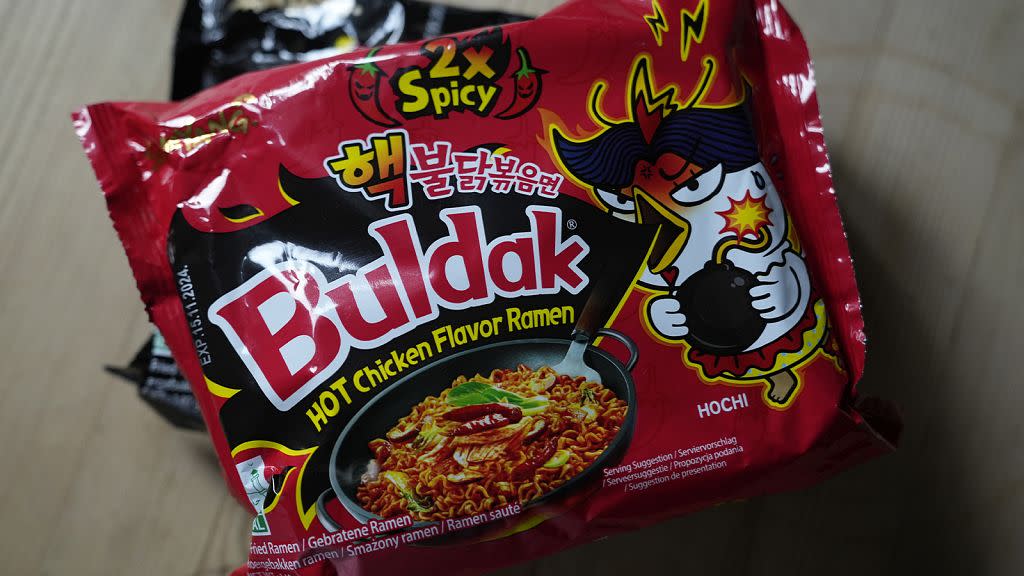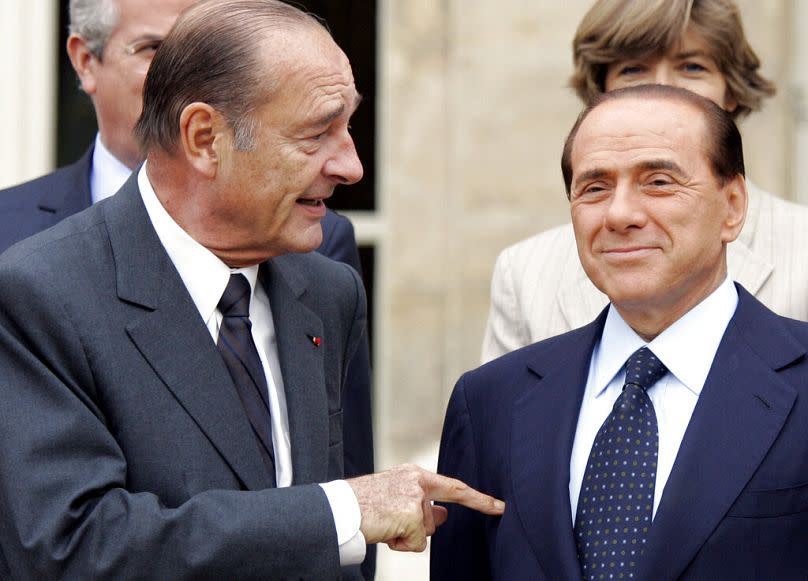Denmark recalls popular Korean noodles over excessive spiciness: Real risk or too hot for Danes?

Danish authorities have halted the sale of three popular Korean noodle products, warning that they are so spicy they may land consumers in hospital.
As first reported by the Korea Times, the Danish National Food Institute has advised Danes not to eat three widely sold products produced by South Korean brand Samyang.
“The National Food Institute assesses that the levels of total capsaicin in a single pack of all three noodle products: ‘3xSpicy & Hot Chicken’, ‘2xSpicy & Hot Chicken’ and ‘Hot Chicken Stew’ are so high that they pose a risk of the consumer developing acute poisoning,” read the official announcement of the recall.
Capsaicin is an active component of chilli peppers — and what makes them hot to the human palate.
The institute has advised parents to call a poison hotline if their children show ill effects after eating the noodles.
“However, if your child has eaten hot chilli without acute symptoms of poisoning, there is no need to worry,” reads the advice.
It is not clear what triggered the recall. In a statement, a Samyang Foods official told the Korea Times that they would be investigating.
“It seems that the Danish food authorities have initiated the recall due to concerns that the excessive spiciness could cause problems, not because of any quality issues with the product,” the company said. “We plan to closely examine the Danish regulations and respond to the recall accordingly.”
Social media users have been quick poke fun at Denmark for its supposedly puny spice tolerance, joking that cardamom - a strong but not hot herb - is probably hot enough for most Danes' palates.
It's not the first time a Nordic country has been mocked for its cuisine. But other countries have faced real consequences for doing so on other occasions.
Edible diplomacy
In 2005, then-French President Jacques Chirac was overheard joking about the quality of British cuisine in a three-way conversation with none other than Vladimir Putin and Gerhard Schröder.
“You cannot trust people who cook as badly as that,” he said, according to French daily newspaper Libération. “After Finland, it's the country with the worst food.”
The comments were not meant to be publicly shared, and small wonder: at the time, France was competing with the UK for the chance to host the 2012 Olympics, and the International Olympic Committee panel charged with making the decision counted two Finns among its ranks.
The games were ultimately held in London, and Paris would have to wait another 12 years for its next chance.

Chirac wasn’t the only leader from a gastronomic superpower to throw shade on Finland’s food culture. At the inception of the European Food Safety Authority in 2002, Silvio Berlusconi told an EU summit that it would be absurd for the agency to be based in Finland because “the Finns don’t even know what prosciutto is".
He also mocked Finnish cuisine as dominated by “marinated reindeer” (a dish not, in fact, widely consumed in Finland) and described it as something he “endured” on a diplomatic visit.
Once again, the Finns had their revenge. In 2008, Finnish chain restaurant Kotipizza began selling the “Pizza Berlusconi”: red onions, mushrooms and smoked reindeer atop a wholemeal and rye flour base.
At the time, Italian newspaper Corriere della Sera described the pizza as “innovative and very tasty”, but likened its name to an act of revenge.
Radio commercials for the chain riffed on the incident with lines like “A 97-year-old granny bit into a Berlusconi. Be like that sprightly old lady” and “A minister forked up a Berlusconi. You can, too, sensibly and responsibly”.
Worse still for the Italians, the Nordic concoction won first place at the world-renowned New York Pizza Show — beating two Neapolitan chefs.
Nevertheless, while Helsinki and Parma vied to host the EU's prestigious food agency, it was the Italian city known for its prosciutto that ultimately won out.

